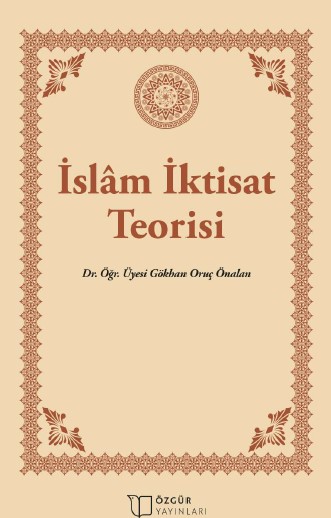İslâm İktisat Teorisi
Islamic Economic Theory
Author(s): Gökhan Oruç Önalan
Subject(s): Business Economy / Management, Logic, Welfare systems, Contemporary Islamic Thought, Socio-Economic Research, Qur’anic studies
Published by: Özgür Yayın Dağıtım Ltd. Şti.
Keywords: Islam; Logic; Islamic economics; Maqasid Thought; Welfare and Felah;
Summary/Abstract: Verse 27 of Surat al-Shoora clarifies the criteria by which the blessings and opportunities in the life of this world are distributed among the servants, and thus helps the minds to correctly grasp the message emphasized in verse 26, that Allah gives more of His bounty to His servants who believe and do good deeds. If Allah had given all people the blessings and resources such as intelligence, health, talent, etc. abundantly and equally in this world, there would be no unity, stability and order on earth. People would not be concerned about developing their skills, there would be no regular working life, no search for a balance and system (for example, the science of economics) for the sake of employment and the sharing of material opportunities, and as a result, civilizations and states would not have been established. When we interpret the message of verse 41 of Surat al-Rûm in a general framework within the framework of the economic problems of today's world, we come to the fact that the cause of the economic problem (mischief) is man and the capitalist economic system that makes man think about what he needs and not what he should think about the distribution of the blessings (justice in distribution). Therefore, if an economic understanding centered on prosperity and felah, that is, the economic principles of Islam, takes its place in people's lives, there will be no trace of these problems.
- E-ISBN-13: 978-975-447-564-7
- Page Count: 278
- Publication Year: 2023
- Language: Turkish
- Introduction
- Table of Content
- eBook-PDF

